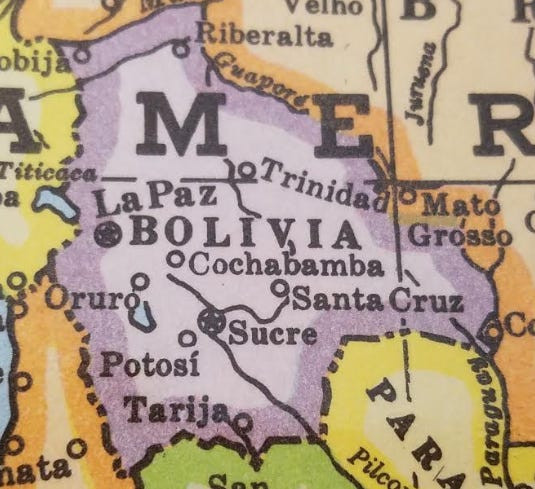The Canadian government is recommending travellers be aware of reported outbreaks of the Oropouche virus in the Americas, where cases are higher than anticipated, with some countries experiencing their first-ever infections.
The disease is spread to humans by the bite of a biting midge, and possibly mosquitos. Symptoms include fever, severe headache, vomiting, and dizziness.
The virus is not new to the Americas, but its emergence in Brazil, Bolivia and Cuba is unprecedented.
"There are concerns that the Oropouche virus may be transmitted from a pregnant person to their baby in the womb, leading to adverse pregnancy outcomes including stillbirth," says the government’s health advisory, which adds that pregnant travellers should closely follow insect bite prevention tips.
Oropouche Virus Cases On The Rise: What Travellers Need To Know
Travel-related cases of Oropouche virus infection, also known as "sloth fever," have been reported globally, with most linked to travel to Cuba. Local authorities there launched fumigation campaigns in Havana on Friday, according to Reuters, but these efforts have been hampered by fuel shortages in the country.
These fuel shortages have contributed to a travel warning being issued for those heading to Cuba. "A high degree of caution is advised," Canadian authorities warn.
Cuba is facing chronic and severe shortages of food, bottled and publicly accessible water, medication, fuel and hard currency. Areas outside of tourist destinations are most severely affected by intermittent power outages, making access to services difficult.
Resort areas remain at level 1. "Take normal safety precautions," the advisory adds.
More than 20 travelers returning to the U.S. have been infected with the disease, U.S. authorities announced on Tuesday. There have been no reported deaths among U.S. travelers. U.S. authorities have asked doctors to be vigilant about potential domestic spread, although there has been no such spread yet.
Since the last major outbreak late last year, around 8,000 cases have been reported in Bolivia, Brazil, Colombia, Cuba, and Peru.
In June, the WHO raised concerns about the virus’ emergence in Cuba, due to the population’s relative vulnerability to the disease.
"This is the first detection of the disease in the country, therefore the population is likely highly susceptible and there is a significant risk of detection of further cases," read a risk assessment published by the WHO on June 11. "There is a risk of international spread, Cuba being an international tourist destination."
Precautions To Prevent The Virus
The Canadian government encourages travellers to consult its Travel Advice and Advisories page before heading to their destination.
When it comes to protection against bites, Ottawa recommends using an approved insect repellent on exposed skin, staying in accommodations well-equipped with mosquito netting on windows and doors, and limiting outdoor activities during the peak hours of biting midges and mosquitoes.
The government also advises wearing loose-fitting, light-colored clothing made of tightly woven materials like nylon or polyester, and prioritizing long pants and long-sleeved shirts tucked into pants, along with closed shoes or boots and a hat. It also recommends using a mosquito net when sleeping, both day and night, if you’re outdoors or in buildings that are not fully enclosed.
A Look At The Latest Oropouche Virus Outbreak
The Oropouche virus disease (OVD) is caused by the Oropouche virus, which is spread to humans through the bite of an infected biting midge, or possibly mosquitos. The disease is also known as "sloth fever."
Although this virus has already been detected in the Americas, the current case count is "higher than expected," says the health advisory issued on September 3. Infections are therefore being reported in parts of Brazil, Bolivia, and Cuba, where the virus had not been present before.
"Several travel-related cases of OVD have been reported internationally, with the majority involving travellers returning from Cuba," states Ottawa.
While the full impact of the Oropouche virus remains limited, there are concerns that the virus can be transmitted from a pregnant woman to her baby, leading to adverse pregnancy outcomes like stillbirth or, potentially, congenital microcephaly, the government says.
Ottawa advises pregnant women travelling to affected areas to follow insect bite prevention methods and discuss risks related to their travel plans with their healthcare provider.
It’s noted that mosquitos are most active at night, while biting midges are more active in the afternoon.
There’s no vaccine to prevent OVD. Symptoms usually appear between three and eight days after the bite of an infected insect. The most frequent, extreme symptoms include fever, severe headache, chills, muscle and joint pain.
Ottawa notes that in rare cases, OVD can lead to serious illnesses, such as meningitis, encephalitis (inflammation of the brain), or hemorrhage.
Over 500 cases of the virus have been recorded in Cuba since May, when the disease was first detected in the east of the island, health officials said last week.
Local authorities launched fumigation efforts in Havana last Friday, reported Reuters, but these efforts have been hampered by fuel shortages.
These shortages have led to a general advisory for travellers heading to Cuba: "Exercise a high degree of caution," authorities warn.
This is the second level of risk issued by Canada on a four-level scale. Higher levels include "Avoid non-essential travel" and "Avoid all travel."
That being said, resort areas remain at level 1: "Take normal safety precautions."


















